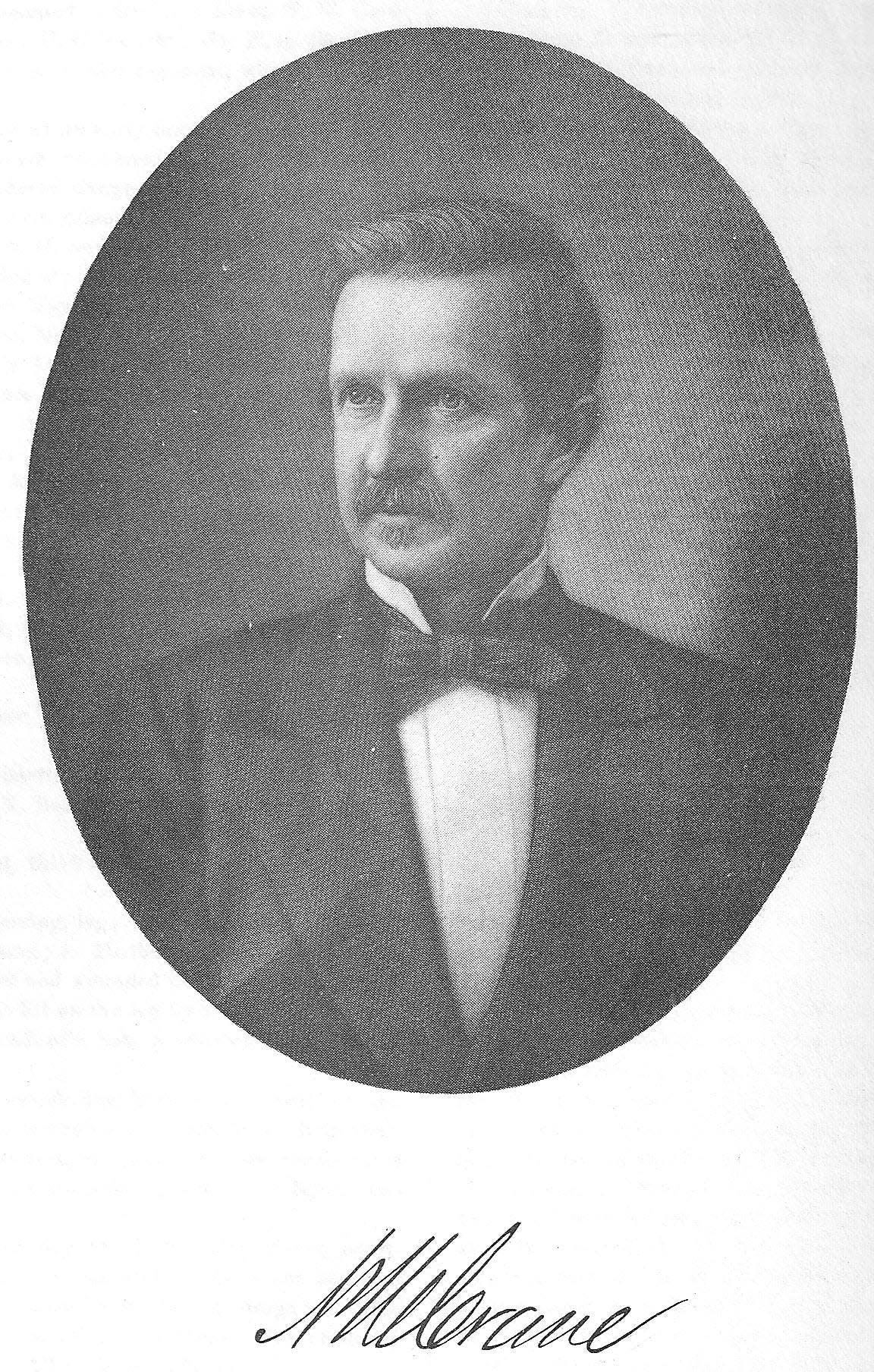'Touched With Fire': How Hornell man went from Steuben County banker to Civil War general
The great cyclone of the Civil War swept up every single American, transforming (or ending) lives that might have taken very different paths. When Nirom Crane was born in Penn Yan, back in 1828, no one could have predicted (or wished) that his days would be so forcefully shaped by war.
But “the war came,” and maybe family values channeled his choices. An American ancestor fought in Queen Anne’s War, his grandfather in the Revolutionary War, and his father in the War of 1812.
Nirom Crane spent his youth and childhood on Keuka Lake between Penn Yan and Wayne, where he started retail clerking at 15. At 21, he opened his own mercantile (or store), then married a Wayne girl and went into banking in Hornellsville.
Here the outbreak of war found him and he quickly joined up, even as his grandfather had on news of the Concord fight. Now 33 years old, Nirom Crane became lieutenant colonel of the 23rd New York (the “Southern Tier Rifles”) ... one of the first new regiments to rush to Washington.
Though a regiment was nominally commanded by a full colonel, in practice Lieutenant Colonel Crane was often in actual charge, as he was in the battles of Rappahannock, Groveton, Second Bull Run, Chantilly, South Mountain, and Antietam. His work caught the eye of higher-ups and after Antietam, General Reynolds brought him up to Corps level as acting inspector-general, then as aide to Reynolds himself.
Then General Hooker took him another step, making the former banker and shopkeeper the assistant provost-marshal-general for the entire Army of the Potomac.

The 23rd had signed up for a two-year enlistment (more then enough, most people assumed, to roll up the Rebellion), so Crane and his men mustered out in June of 1863, after taking well over a hundred casualties.
Despite this honorable, even exemplary discharge, Crane took just two weeks at home before re-enlisting and returning to the field. Now a full colonel, he caught up with the 107th Regiment and took command on the road to Gettysburg.
There they got off lightly (considering the total carnage, and the regiment’s own past experience), and two months later were transferred to Tennessee. Before long they were under theater command of Sherman, even as Grant took overall charge from Virginia. Crane’s men suffered 165 casualties in the first 11 days of the drive on Atlanta, and 60 more in the March to the Sea, at the end of which they helped capture Savannah.
First Steuben County Starbucks: New location opening in Riverside 'any day now'. Jersey Mike's, T-Mobile expected to follow
The spring of 1865 found them driving north through the Carolinas with Sherman. It was there and then that Colonel Nirom Crane received a brevet promotion to brigadier general for gallant and meritorious conduct. The army was still experimenting with medals. Brevets were honorary promotions to reward merit -- though their service (and pay) levels stayed the same, men with brevets were entitled to be addressed by the higher rank, and Nirom was “General Crane” for the rest of his life.
Once the war ended he returned to banking in Hornellsville (what we now call Hornell), served a year as Steuben County Clerk, and was on the first board of trustees at the New York Soldiers and Sailors Home (now a V.A. facility) in Bath. He divided his time between Hornellsville and Wayne, more in Wayne after financial reverses, and is buried in Hornell.
The fact that 12 years separate the births of his first two children helps illustrate the fault-line that this giant war cracked in American lives. This unremarkable banker was “touched with fire,” as fellow-veteran Oliver Wendell Holmes said. He became a general, a leader of men, a winner of bloody victories.
At least he got to come home.
-- Kirk House, of the Steuben County Historical Society, writes a local history column appearing in The Leader and The Spectator.
This article originally appeared on The Evening Tribune: How Hornell man went from Steuben County banker to Civil War general
